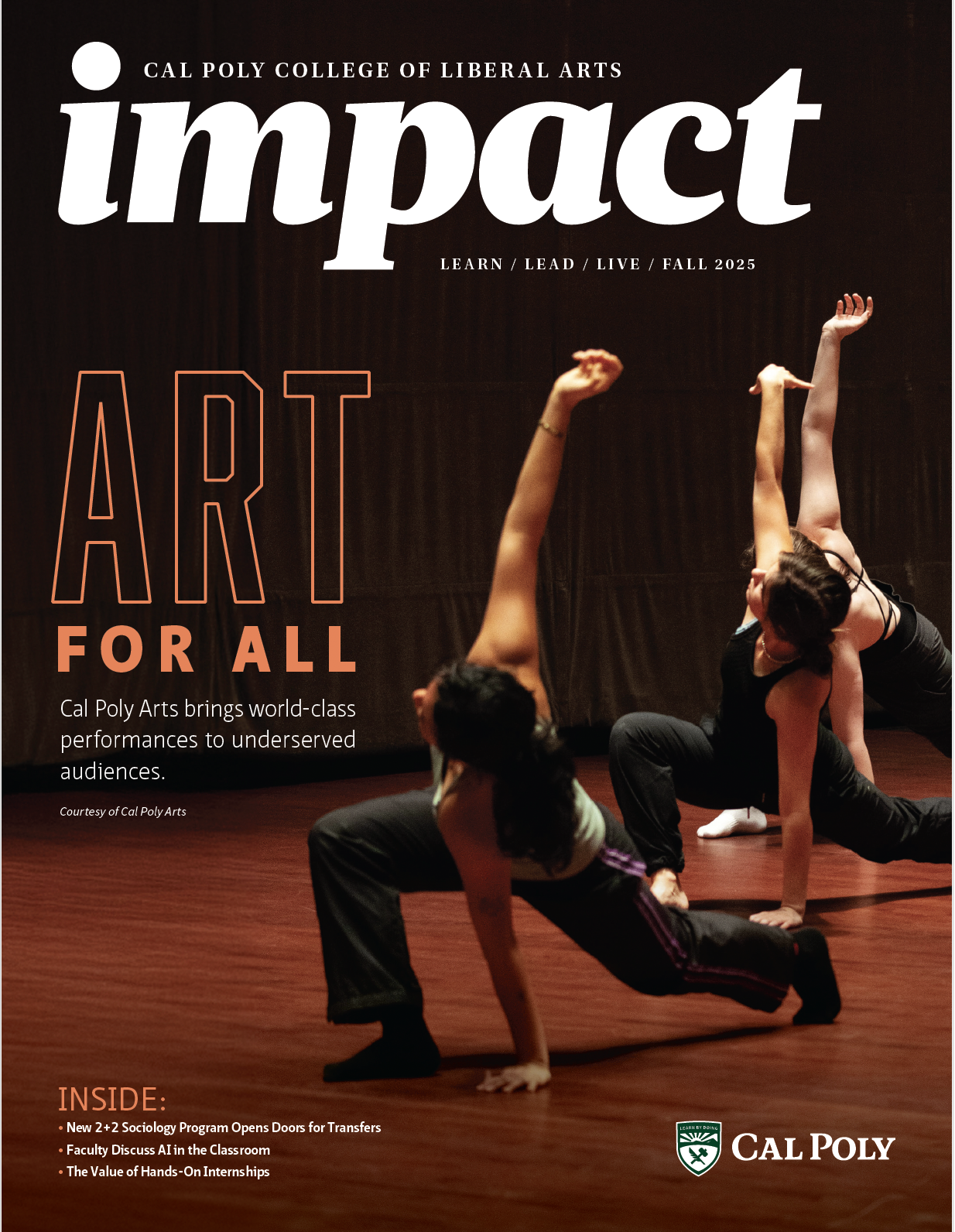Ethnic Studies Course Highlights Hip Hop History and Creates Important Dialogue
Hip hop studies is an emerging field in academia, and Professor Jenell Navarro has increased its prevalence at Cal Poly.
Navarro has taught Ethnic Studies 310: Hip Hop, Politics and Poetics for the past six years. Additionally, the campus has seen a number of events around campus highlighting the music genre’s rich history.
“Hip hop studies have really taken off in academe,” Navarro said. “There are over 350 classes taught across the nation just on hip hop studies. There’s an entire major in hip hop studies at Arizona State University. The fact that Harvard is curating a hip hop archive really tells us that there is a deep embedded form of knowledge in that culture. It shows the breadth of this area of study.”
Navarro said hip hop studies helps shed light on underrepresented communities in the United States. She emphasized the importance of studying and celebrating conscious hip hop, which challenges systemic oppression.
“We’re really seeing the ways in which scholars are utilizing hip hop culture as a part of our own life experiences, and bringing them into the academy as a way to interrogate and investigate forms of racism, sexism, capitalism, and those ongoing oppressions,” Navarro said.
She said studying hip hop also helps affirm and celebrate the identities and capabilities of underrepresented students on campus.
“I’m trying to give our students of color an educational opportunity where their cultures are centered,” Navarro said. “Authors who look like them, who have experiences like them, who understand their lives, are showcased on the syllabus. That’s what we try to do in the Ethnic Studies Department. It’s my hope that our students of color will feel a deeper level of representation, validation and legitimation of their own scholarly capabilities.”
ES 310 provides a different learning model for students because the voices are from a new kind of source.
“If we want to value multiple forms of knowledge that are not just Western epistemologies, then hip hop is a great way to do that,” Navarro said. “It’s lived, experiential knowledge. It’s knowledge from the actual struggle, from the ground up, not from the top down. That cuts against what most of us read in classes we take in institutions of higher education.”
The 2017-18 school year brought a number of hip hop related events to campus. In addition to the annual Hip Hop Symposium, the culminating event of ES 310, Navarro partnered with Kennedy Library gallery curator Catherine Trujillo to bring a hip hop exhibition to the second floor of the library from April 12 to June 15.
The exhibition, “Don’t Believe The Hype: The Radical Elements of Hip Hop,” featured art created by students that showcased five elements of hip hop: DJing, MCing, breakdancing, graffiti art, and knowledge production. Students learned the history of each element of hip hop as they walked through the gallery.
When journalism junior Isabel Hughes took ES 310, she was reminded of the importance of studies that highlight communities of color.
“This class and ethnic studies classes, in general, are incredibly important to offer at any institution, but especially at a predominantly white institution like Cal Poly because they illuminate the histories of people of color,” Hughes said. “They expose the white supremacy that is ingrained in our society and aim to enhance cultural competency.”
While students may find these conversations about oppression difficult, Navarro said they are necessary to enhance understanding of one another and create an inclusive environment for all. Hip hop creates that conversation.
“Hip hop is kind of a tool and a springboard to have difficult conversations about race and ethnicity,” Navarro said. “Sometimes, they’re uncomfortable conversations. But our campus needs those conversations more than ever right now.”

